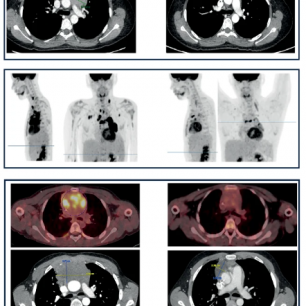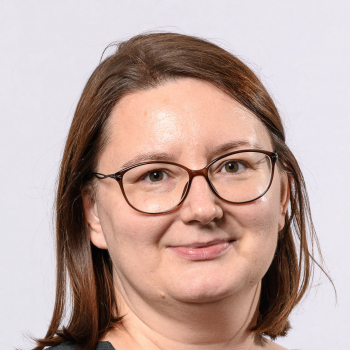Normal and Pathological Lymphoid Differenciation
Our research focuses on understanding the fundamental processes controlling the development of human T cells and their role in the onset of immature T lymphoid malignancies, particularly T-cell lymphoblastic acute leukemias (T-ALL) and lymphomas (T-LBL).
We integrate oncogenetic, immunogenetic, particularly the molecular mechanisms governing T-cell receptor (TCR) VDJ rearrangements during human T-cell ontogeny, and epigenetic approaches with functional genomics. Our close interaction with clinical cooperative groups treating children and adults with these cancers favors the ultimate goal of developing targeted therapeutics for leukemia and lymphoma.
T-ALLs are clonal proliferations that occur during specific stages of thymic differentiation. The connection between oncogenic deregulation and normal T cell development, including the mechanisms responsible for assembling the TCR, is at the heart of our investigations. This link underscores the importance of understanding the interplay between physiological signals that regulate cell growth and apoptosis and the development of oncogenic processes, in order to exploit tissue/stage specific aberrations with therapeutic intent.
As diagnostic clinican-scientists, our aim is to manage and utilize human tissue resources optimally, including with exploitation for scientific discovery. Our guiding principle is that unraveling the pathways leading to oncogenesis and improving treatment requires a deep understanding of the normal development of the immune system when tissue homeostasis goes awry.
A breakdown of our research objectives:
- Decode the language of Antigen Receptor Rearrangements
- Understand maturation arrest and lineage affiliation to enhance the classification of lymphoid malignancies.
- Investigate the potential oncogenic role of deregulated receptor rearrangements in the development of lymphoid malignancies.
- Analyze TCR signaling function in T lymphoid oncogenesis.
- Identify opportunities for therapeutic correction of blocked lymphoid maturation resulting from deregulated receptor rearrangement.
- Explore the mechanisms of action of Homeotic proteins in normal and pathological thymopoiesis.
- Investigate Epigenetic Regulation
- Explore the epigenetic regulation of human VDJ rearrangements during T lymphoid development (Blueprint).
- Study Immature Lymphoid Disorders:
- Examine Immature T/My/NK/ILC disorders to understand the interface between the lymphoid and myeloid lineages.
- Explore Signaling Pathways
Investigate the role of cytokine receptors, NOTCH1/FBXW7 pathway deregulation, and aberrant signaling pathways in T-lymphoid oncogenesis.
- Innovative Patient Management
- Utilize innovative cellular and molecular techniques to improve the integrated management of leukemia and lymphoma patients at diagnosis and during follow-up.
- Employ Ig/TCR markers for minimal residual disease for personalized management in ALL and NHL.
- Leverage multiparameter flow cytometry, digital droplet quantification, and high-throughput somatic onco- and immuno-genetics at diagnosis and follow-up.





























